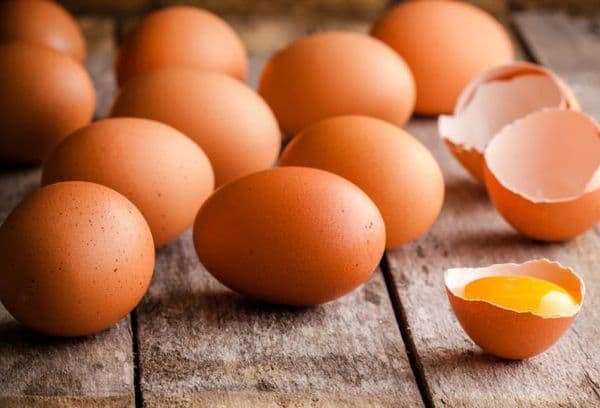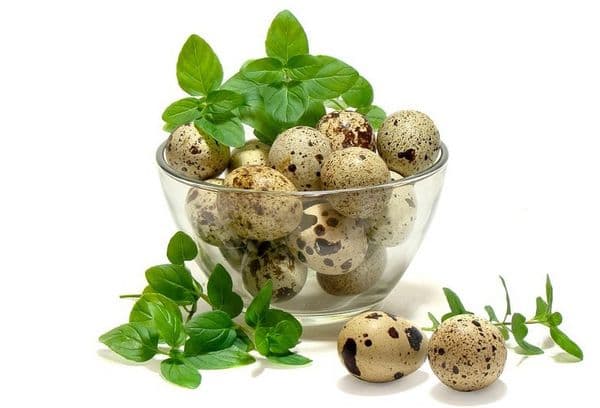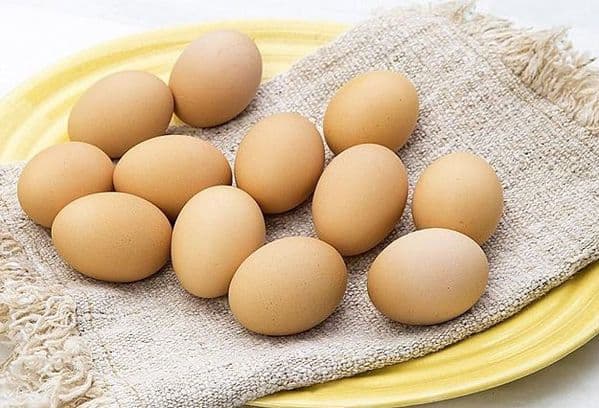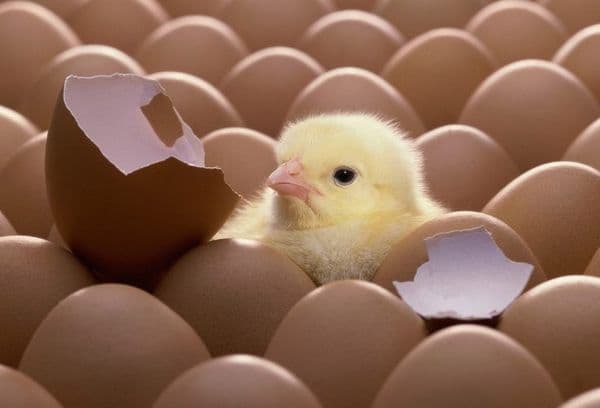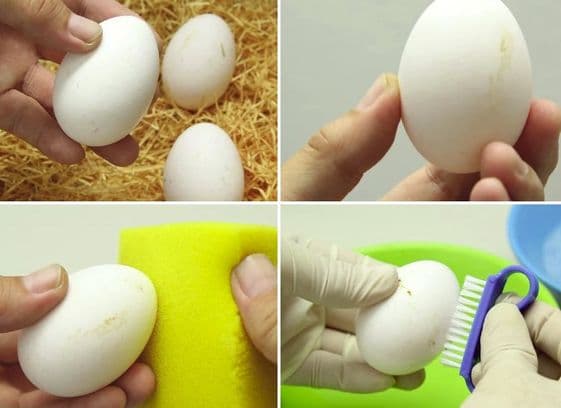Do I need to wash eggs before cooking and storing?
Most scientists agree that eggs must be washed before cooking and especially thoroughly before eating raw. However, there are different, conflicting views on whether disinfection is necessary before placing in the incubator and before storage.
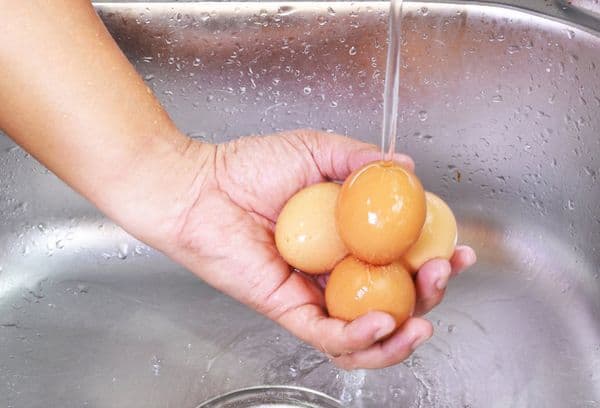
Briefly about the essence of the danger
As you know, eggs emerge from the anus of birds; this in itself makes you want to wash them until they shine. The danger really lies in those infections that get on the shell along with natural waste products:
- salmonella,
- helminths,
- mycoplasma.
They do not get inside the egg as long as the shell is intact. But once a crack appears, the infection is quite capable of infecting the product or the hatched chick.
Are there safe eggs?
It is difficult to give a definite answer. Any egg laid by a 100% healthy bird, be it a goose or a miniature quail, is safe. The problem is that no enterprise, much less a farm or household, can guarantee such health for all its birds.
Do I need to wash quail eggs?
These birds are not as susceptible to salmonellosis as ducks or geese, but they also have mycoplasmas and helminths. Therefore, quail eggs require exactly the same treatment as chicken eggs. The difference is that the risk is somewhat lower, because, according to the observations of breeders, the immunity of small birds is higher than that of long-domesticated chickens.
Interesting fact
The first place in terms of the risk of salmonellosis is not chicken eggs, but duck and goose eggs.
Two approaches to storage and breeding
Why don’t harmful microorganisms infect the yolk and white until the shell cracks? After all, it is covered with micropores... It's all about the protective film that envelops the egg from the outside - the cuticle. It is a powerful barrier between any bacteria and the inside of the egg. If you wash the egg thoroughly, it will damage the cuticle - any infection can easily penetrate through the pores into the product. Therefore, Russian scientists believe that eggs should not be washed before storage.
Foreign experts have a different opinion: even at the factory, the shells need to be disinfected, and before long-term storage, they must be washed and placed in a clean tray intended only for eggs. However, even the cleanest dishes do not provide sterility, otherwise the food in the refrigerator would never spoil.
The same two-pronged approach applies to incubation. Proponents of disinfection believe that it is necessary to take care of the chicks and disinfect the eggs before placing them in the incubator. Otherwise, after barely hatching, the chicks run the risk of becoming infected, and their body is still too weak to resist infections.
Opponents of the approach insist that disinfecting the shell interferes with the natural formation of immunity. The result is a weak, disease-resistant population.
Interesting fact
In laboratory conditions, more chicks emerge from disinfected eggs. However, farm experience does not confirm these results.
Before cooking
Resource purity-en.htgetrid.com, having sorted out the pros and cons, strongly recommends that readers always wash eggs before cooking. Especially if the eggs were bought at the market or taken from a home roost.
If cracks are found on the egg or it is not fresh (according to scientists, the cuticle protection weakens 5 days after laying; storage in the refrigerator only partially slows down the process), then it is recommended not only to thoroughly wash the shell, but also to cook the product for at least 10 minutes, and Fry scrambled eggs or omelette on both sides.
What to wash with
Before eating, wash the egg with laundry soap; after this, it is recommended to throw away the napkin or sponge. As a compromise, dishwashing detergent, toilet or antibacterial soap will do. An important nuance is that the substance should not get inside the product, so it is absolutely forbidden to take strong-smelling, especially toxic, substances for technical purposes.
For an incubator, the shell is most often treated with special means: Virocide, Monclavit-1, Brocarsept, or others. Simpler hydrogen peroxide (up to 1.5%) and potassium permanganate are also suitable for the operation. The eggs are soaked in the solution, and then the adhered dirt is removed with a soft brush or sponge. Then let the shell dry on a clean cloth.
Important
Eggs should be soaked for incubation in a warm solution, from 30 to 36 degrees Celsius.
In general, any eggs are a biologically dirty product if we talk about the outer shell. It's not a good idea to wash eggs before storing because the procedure damages the cuticle, which protects the inside of the product better than any dish or moderate cold.
Before cooking, it is imperative to wash the eggs, and not immediately under running water, but first by wiping them with a sponge and soap or soaking them in a disinfectant solution and only then rinsing them with clean water. As a rule, factory-made eggs come to stores already clean of droppings, and they always have a safety mark on them, but caution is never superfluous.
